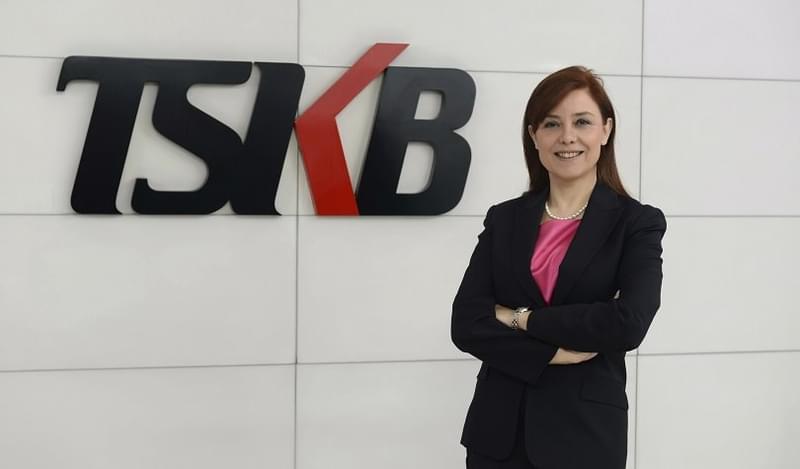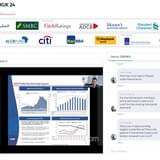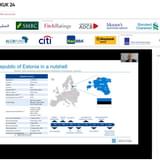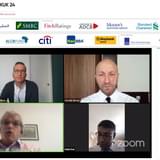What are some of the main strategic initiatives in play at TSKB for 2017?
TSKB offers a rich portfolio of products and services designed and structured in line with the country’s development and business goals in the fields of Corporate Banking, Investment Banking and Consultancy. In addition to these main business lines, the Bank seeks to be a long-term business partner through consultancy services, which is one of our key strategic undertakings in 2017. We aim to provide financing at favourable conditions to investment projects promoting Turkey’s sustainable economic development as well as contributing to improving the competitiveness of private sector companies.
With funding secured from DFIs and FIs, we will continue to finance renewable energy, environmental protection, sustainable tourism, energy efficiency and resource efficiency projects. Planning to place greater emphasis on investment loans in the near future, we aim to grow our loan portfolio in our efforts to contribute to Turkey’s economic development while maintaining our strong asset quality. We will remain focused on sustainable banking and lead the way in socially responsible projects which reinforce economic benefits to a variety of industries.
TSKB has over half of its loan portfolio deployed on sustainability projects, so is well placed to talk about what we can expect to see in terms of the sustainability project pipeline. What sectors do you see driving these kinds of deals in Turkey?
TSKB strives to increase awareness of climate change and carbon management among businesses and universities with its social responsibility projects. TSKB supports more than 211 renewable energy projects, which accounts for 16% of the renewable energy capacity in Turkey. More than 50% of TSKB’s credit portfolio is composed of sustainability investment projects.
Based on our observations of the results of the Paris Agreement as well as COP 22, TSKB estimates that renewable energy, energy and resource efficiency investments are expected to gain more importance in the near future considering the fact that 70% of carbon emissions stem from the energy use in Turkey. Our Teams also put efforts to analyse what actions will be taken by the energy-intense sectors to comply with the new legislation in the years to come, how they will manage these issues, how they will reduce energy intensive processes and their greenhouse gas emissions. We believe that this framework needs to be closely monitored by the finance sector as well. That said, we would expect greater focus placed on investments in areas such as resource efficiency including energy efficiency, renewable energy, logistics, infrastructure and Public-Private Partnership Projects (PPP).
TSKB issued the bank’s and country’s inaugural green bond last year, a significant milestone for the industry. Can you walk us through the issuance process, the kinds of challenges you encountered along the way, and how those challenges were resolved?
The timeframe was one of the most challenging parts. The whole process took approximately 1.5 month which required a great deal of coordination among internal and external counterparties. The related departments of the bank and second party provider worked in a dedicated and cooperative manner.
After the documentation and the underlining projects were ready, the investor meetings took place – at a time when global and local tensions were rising. That said, convincing a wider investor base was another challenging aspect of the issuance. With our solid financial foundation and carefully picked project portfolio, the issuance was well-received, securing an oversubscription rate of over 13X. The counterparties put their trust in TSKB’s banking structure and its role as an institution looking to bolster the case for sustainable economic marginal value. As a result, we successfully realised the first ever Green/SRI Bond issuance from the CEEMA region as well as Turkey, diversified our funding base, expanded our investor base, and created record high demand at the same time.
The green bond market is still quite young, in Turkey and in many emerging market countries; nevertheless, we are seeing some countries move towards developing a viable local currency market for green bonds. What do you think needs to happen so that the local green bond market continues to develop in Turkey? What are some of the key barriers?
Concentrated and dedicated teams showing prioritising their sustainability perspectives are building essential infrastructure for these markets. It is certainly unique, and quite different from a conventional Eurobond issuance. We know the market is growing exponentially, and is being led by DFIs as well as FIs and most recently, sovereigns. A paradigm shift is clearly emerging.
For the local green bond market to establish and develop thereon, a stronger long term local currency investment appetite and loan demand are needed. Local currency green investors are needed to further develop the market for sustainable products.
Investors are increasingly attracted to projects or initiatives that have a sustainability angle, for various reasons, but there are still many questions about risk – particularly, how to measure it. How do sustainability projects compare to similar alternatives in terms of risk? As a specialist and pioneer in sustainable finance in Turkey, and as a key investor into sustainability initiatives, what kind of advice would you give to project sponsors and developers looking to bank these kinds of projects?
We proceed in a multi-disciplinary way on our loan assessments, leaning on economists, financial analysts and engineers. TSKB has longstanding expertise in sustainability projects and in 2005 we have developed our own Environmental and Social Risk Evaluation tool to identify and rate risks associated with clients and projects. TSKB applies this model to all of its investment projects, irrespective of sector or loan size. TSKB’s Engineering Department is responsible for the environmental and social issues of each project to be financed. The project engineer makes site visits, assesses environmental documents and prepares a project evaluation report, including an environmental impact assessment, and suggests mitigation measures. TSKB’s tool is aligned with development institutions’ environmental and social due diligence procedures.
All required actions are included as conditions of loan agreements signed with the clients. During the investment period our engineers closely monitor the whole project.
We make a strong effort to advise project sponsors and developers in using our own environmental and social risk monitoring programs and mechanisms to help build up a learning curve in the corporate environment – that is one of our core missions. We closely monitor the possible risks and are transparent about the outcomes. Escarus Sustainability Consultancy, a subsidiary of TSKB, shares its experience in the sustainability area and helps extend respective business solutions where relevant.
Renewable energy is a big driver of sustainable finance globally. How do you think increasing oil prices with affect the pipeline for renewable energy projects (solar, for instance) in Turkey?
As Turkey is depends largely on energy imports, we will need more renewable energy projects to narrow our current account deficit. With the global political tensions easing, and with a less volatile exchange rate, interest in renewable energy projects will increase. Geothermal and wind projects have been growing in prominence for the past few years. Solar is a relatively new investment area for Turkey and is expected to trend upward in the years to come, along with the other renewable energy investments. The outlook is bright to say the least.









